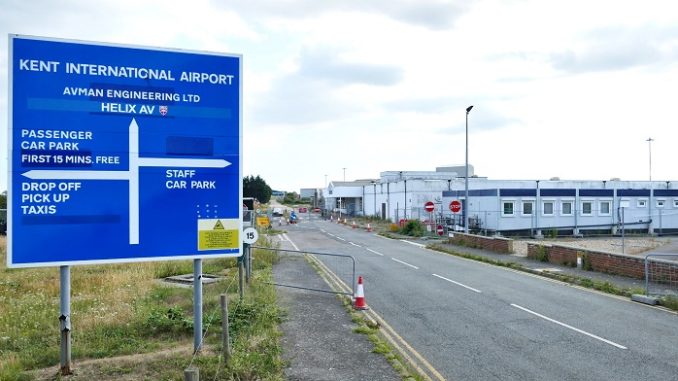
A substantive hearing date has been set for the legal challenge over the government’s decision process in granting permission for the development of Manston airport.
The substantive hearing – which involves the lodging of evidence from the defendant, and interested party -will take place at the High Court on February 16-17.
The review will look at whether the Government followed correct procedure in reaching the decision to approve the DCO for landowners RiverOak Strategic Partners.
The decision on a development consent order for the Manston airport site was announced on July 9 after delays in January and May.
The Department of Transport approved the application to create an air freight hub at the site. The Examining Authority panel of Martin Broderick, Jonathan Hockley, Kelvin MacDonald and Jonathan Manning had recommended that development consent should not be granted.
The JR bid was launched by Ramsgate Coastal Community Team chairperson Jenny Dawes with a crowdfunder raising some £86,000 in pledges to date.
In October the Honourable Mrs Justice Lang DBE granted permission for the Judicial Review and agreed a costs cap, meaning if the case falls Ms Dawes will only be expected to pay a limited amount of incurred expenditure.
RSP says it will reopen the airport in a £300m project to create an air freight hub with passenger services and business aviation.
Ms Dawes says her action was launched due to fears for the impact locally – particularly Ramsgate – and on the climate.
Manston airport closed in 2014 shortly after Stagecoach tycoon Ann Gloag bought the site from Infratil.
What is the JR process?
Judicial review (JR) is the process of challenging the lawfulness of decisions of public authorities, usually local or central government. The court has a “supervisory” role – making sure the decision maker acts lawfully. A JR is not a re-run on the merits of the decision but a challenge to the lawfulness of the decision that was made.
JR requires permission from the Court. The application for permission for JR has to be made within 6 weeks from the date of the decision for planning cases and within three months for non-planning cases.
The first step in the JR procedure is to write a formal letter to the proposed defendant setting out the proposed claim and what is being sought. This is known as a pre-action protocol (or PAP) letter.
If the response to the PAP is deemed unsatisfactory a JR claim (in the Planning Court or Administrative Court – branches of the High Court handling JR cases) can be made. The first stage is to apply for “permission” to apply for JR. The test for obtaining permission to proceed is that you have an arguable case.
The defendant will then generally submit a “summary grounds of defence” to explain why it is unarguable and permission should not be granted.
If permission is granted, the claim proper can proceed to the substantive stage. The court receives evidence from the defendant, and interested party.
Counsel for both sides will submit “skeleton arguments” – summaries of the respective legal cases. The judge should pre-read these and essential parts of the papers. If this is done, the hearing itself can proceed quite rapidly. JRs seldom take more than three days and many are over within one day.
The judge may deliver judgment there and then or orally shortly afterwards, or it may be “handed-down” in writing later.
After judgment is given, there is usually argument about who pays the costs, and whether permission should be given to appeal the decision.
Judges usually refuse permission to appeal, and one has to apply to the Court of Appeal directly for permission.
The general rule remains that the loser pays the winner’s costs. In environmental cases the Aarhus Convention requires that legal proceedings must not be “prohibitively expensive” although cost limits apply only in claims brought by members of the public.
In the case of the Manston JR the court has imposed a cost limiting order cap limiting the amount Ms Dawes will have to pay towards the Secretary of State and RSP’s combined costs – if she loses – to £5,000.
If the Secretary of State and RSP lose, the amount they will have to pay towards Ms Dawes costs has been limited to £35,000 each – a total of £70,000.
JR process source Richard Buxton Solicitors

